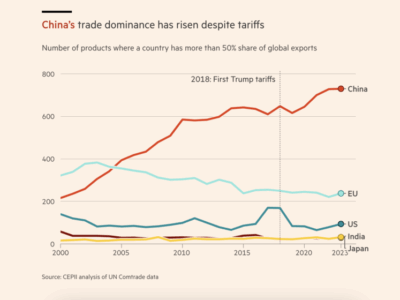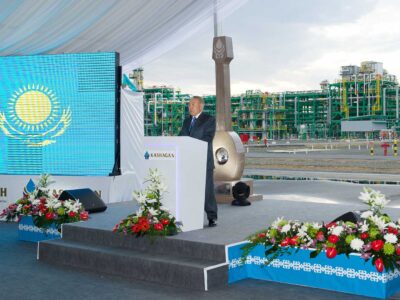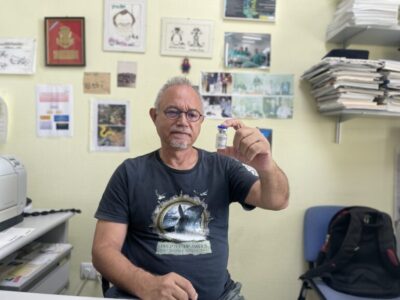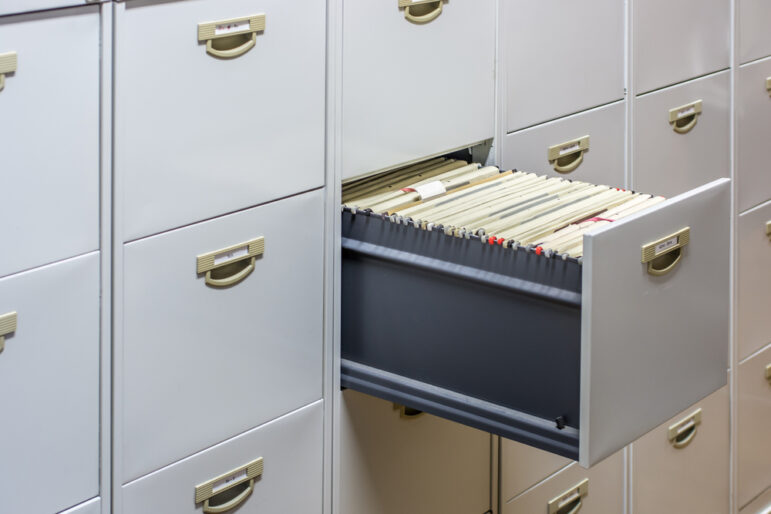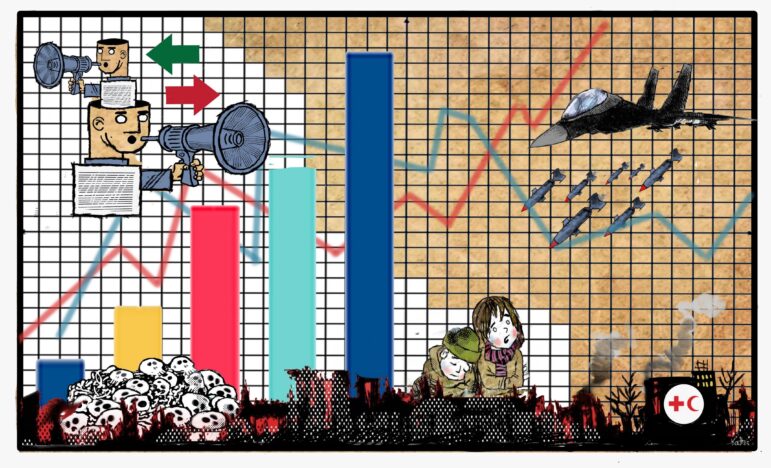
It was 2017 when a targeted car bomb attack silenced Malta’s most formidable journalist.
Daphne Caruana Galizia was described as a “one-woman WikiLeaks,” who had spent her career exposing high-level government corruption, the tentacles of organized crime on the island, and suspicious business deals.
While she had worked for The Sunday Times in Malta and the Malta Independent, in later years her work was published on a simple WordPress blog set up by one of her children.
Her investigative reporting had long put her in the line of fire and she had seen numerous attempts to silence her: she was even facing 48 nuisance — or SLAPP — lawsuits at the time of her death.
Her assassination sent shockwaves across the investigative journalism world, and left Malta facing a vacuum of information paired with a chilling effect on the few remaining investigative journalists.
“It’s something that’s going to take generations to recover from,” her eldest son Matthew Caruana Galizia tells GIJN.
While three men have been found guilty of carrying out the murder, the family is still fighting for full justice. Nearly eight years later, the trial of the alleged mastermind is yet to start and he was released on bail on February 6. (“No one should have to wait this long for a trial,” Matthew Caruana Galizia wrote on social media in response to the news.)
But in the weeks after the attack, the Caruana Galizia family had the idea to launch the foundation bearing Daphne’s name, realizing that an organization with a strong mission statement would provide the perfect framework to respond to what had happened and continue to bolster investigative reporting in the European Union’s smallest member state.
“It was extremely difficult in the weeks after the murder to start picking up the pieces and building something new out of them,” says Matthew, who is now the director of the Daphne Caruana Galizia Foundation. “It’s difficult enough to deal with the death of someone close to you. Let alone to have to deal with that and also build a new enterprise.”
But they succeeded — thanks to the “many sacrifices that many people made” and by pulling together in the face of the tragedy — and the foundation was formally established as a nonprofit foundation in 2019.
The foundation has different arms, each with its own aims: advocacy, public interest litigation, achieving full justice for Daphne, and a division that works with journalists to produce quality investigative journalism. “It already is what I hoped it would become,” Caruana Galizia says. In 2021, it became the first organization from Malta to join GIJN.
Fighting Back
Resources are allocated depending on what fires the foundation is fighting at any given time. For instance, as the foundation was lobbying the EU to introduce a directive to protect journalists from vexatious lawsuits, a workload that first took up to 20% of the foundation’s time surged to take up 90% when negotiations reached their peak.
The EU directive, known informally as Daphne’s Law, was passed in 2024, and sets minimum standards in all of the EU’s 27 member states for the legal protection of journalists, activists, academics, and other public watchdogs.
While that success has both domestic and international implications, the organization has also been working for change on the island of Malta itself.
One of the most important moments was getting the government, led by the Labour Party, to set up a public inquiry into Daphne’s assassination. Caruana Galizia describes the inquiry — which concluded in 2021 — as “groundbreaking,” since Maltese citizens were seeing people whom they previously thought to be untouchable being held to account in public.
The inquiry found that the Maltese state was responsible for creating the culture of impunity that led to Daphne’s assassination. Malta’s current Prime Minister Robert Abela apologized to the journalist’s family on behalf of the state, but so far has failed to implement the inquiry’s recommendations.
More public inquiries were to come. Having become the de facto experts on public inquiries in Malta, in 2022 the foundation was approached by one grieving mother seeking justice for her son.
That year, six workers became trapped when a building under construction collapsed. While five of the men were rescued, after a 14-hour search operation, the lifeless body of 20-year-old Jean Paul Sofia was pulled out from under the rubble. His mother, Isabelle Bonnici, called for a public inquiry into the case so that necessary reforms in Malta’s construction sector would take place.
“I remember sending a message to Matthew [Caruana Galizia] and he answered me immediately, saying they were willing to help,” Bonnici says, recalling how she first approached the foundation. “I asked myself: Is this possible? They were my lifeline. I wouldn’t have managed to get anything done without them.”
Although Prime Minister Abela had initially opposed the inquiry, he relented in the face of a massive protest outside his office. Upon its conclusion, the inquiry found that the Maltese state was, yet again, responsible for the death of one of its own citizens.
“More than six years after it failed to prevent Daphne Caruana Galizia’s assassination, the Maltese state has again been found responsible for a death that could have been prevented,” the foundation stated at the time.
It could be said that the campaign for justice for Daphne’s murder has snowballed into a broader campaign for accountability. This year, the country sank to its lowest-ever position on Transparency International’s Corruption Perceptions Index. While that’s the case, the foundation’s doors will remain open to those who feel powerless.
Birth of Amphora Media
The small team behind the foundation has been contributing to the local media landscape by offering free legal advice to journalists and by sharing documents with other newsrooms. Their next milestone is to launch their own media outlet.
“One of the foundation’s key objectives is developing investigative journalism in Malta, and I can’t think of a better way to do that than developing this publishing arm, this brand of the foundation, that is an editorial operation in its own right,” Caruana Galizia explains.
Amphora Media launched in February 2025 as a website publishing investigative reporting in English and Maltese. Its team of four will be headed by Julian Bonnici as managing editor. Bonnici had left Malta feeling frustrated that the local media landscape’s fast pace only allowed for “surface level journalism.” He spent the last two years working in Brussels as a communications officer for a think tank.
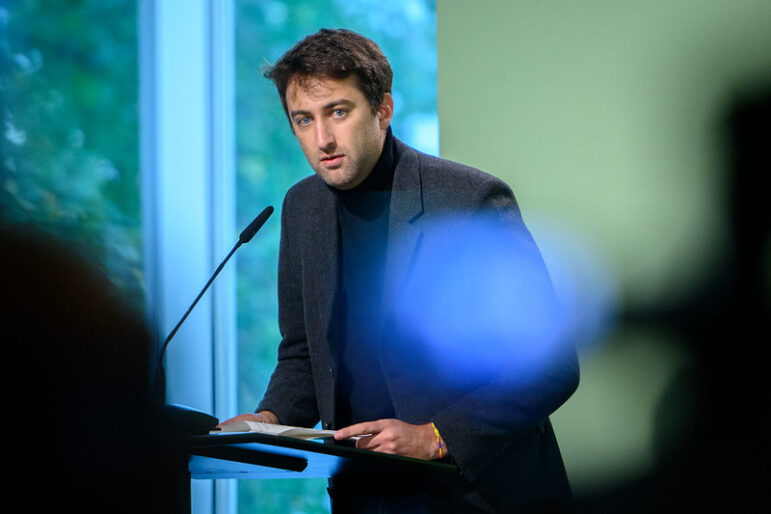
Matthew Caruana Galizia speaks at the European Democracy Conference in 2022. Image: Heinrich Böll Stiftung, Creative Commons
“I used to get frustrated that there was never the time, the resources, or the support to really dig deeper into the big stories that are around Malta,” Bonnici says.
Pitching Amphora media’s exclusive focus on investigative journalism with a rigid fact-checking process, Caruana Galizia managed to entice Bonnici back.
While a large focus of Amphora Media will be on the happenings on the 17-mile-long island, Caruana Galizia wants the outlet to pursue international investigations — something he’s no stranger to, having been part of the International Consortium of Investigative Journalists (ICIJ).
Malta might be a small island, but he’s keen to combat any perception that investigative reporters, and outlets, from countries like his aren’t able to hold their own with the biggest international players.
“There is a general view, that if you’re, say, a journalist from the US or the UK or a big country and a lot of your work is in English, then the media organization that you set up is going to play at an international level by default,” Caruana Galizia says. “But on the other hand, if you’re from a smaller country, or maybe a country where English isn’t the first language, even if you do set up your own strong media organization, then you are immediately pigeonholed.”
Their main focus areas will be public interest stories, corruption, organized crime, politics, justice, and others focused on Malta. They have not ruled out building on investigations that Daphne had started work on.
Which is apt, because every euro in Daphne’s bank account at the time of her death served as the foundation’s seed money. “She didn’t have a will, she was in her early fifties when she was killed. And didn’t expect to die at that point,” Caruana Galizia adds.
When the account ran dry, they applied for competitive funding. “Because we were so new to the field we lost some but we won others,” he explains. According to Caruana Galizia, the first four years were the hardest because of the limited resources. He converted the ground floor of his house into an office and constantly had people coming and out. Simultaneously the family had to keep up with the public inquiry into Daphne’s murder and the criminal cases, which were in full swing.
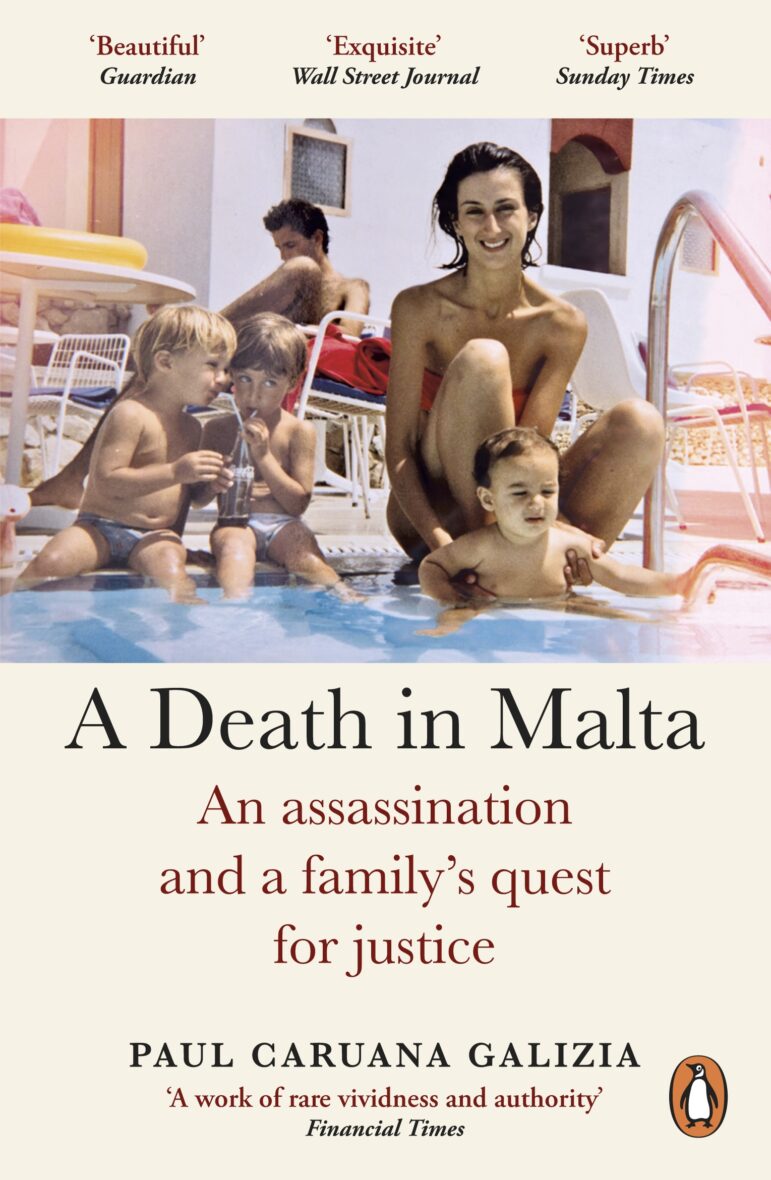
Image: Penguin
To date they have received project-specific grants from funders in the EU and in the US, including UNESCO and Transparency International, and they also rely on readers who donate small sums of money every month. It allows them to do their core work which isn’t covered by any other funding stream. Profits from “A Death in Malta,” a book by Paul Caruana Galizia about their mother, are also being directed towards the foundation. (Paul, too, has followed in his mother’s footsteps and currently works as an investigative reporter for the Financial Times.)
But like media organizations around the world, it faces a complex panorama. Malta still only ranks 73rd out of 180 countries on the Reporters Without Borders Press Freedom Index, which notes that journalists “considered ‘hostile’ are sidelined and targeted for attacks.”
The latest RSF report notes how Daphne’s family has even been subjected to posthumous defamation suits, and how Maltese society “suffers from deep polarization.”
That’s a topic that Caruana Galizia has grappled with.
“Even among the people that we are helping with the fight against corruption, there are many who don’t realize that we’re helping them,” he points out. “They have been trapped in the mindset, maybe because of propaganda, that we are enemies of their favorite political party.”
Dr. Robert Aquilina is the Maltese representative of Italy’s Fondazione Falcone, which has a stated goal of creating “a culture in which what happened to Daphne, or anything like it, can never and will never happen again.”
He believes the Daphne Caruana Galizia Foundation can contribute to public discourse from a point of view that others can’t: The family’s great personal loss has given the project high levels of credibility in Malta and abroad, he said.
“No one can accuse them of trying to advance some political force or another. If anything, they want to advance the journalistic profession,” Aquilina said.
In the aftermath of Daphne’s assassination, skepticism about the country’s future was rife. However, many people channeled their anger into something constructive, opening new organizations or strengthening existing ones. For Daphne’s family, that challenge was intensely personal.
“I wouldn’t say that the work itself brings closure,” says Caruana Galizia. “It is justice itself which brings closure. But the work of the foundation in that regard is the means to that end.”

